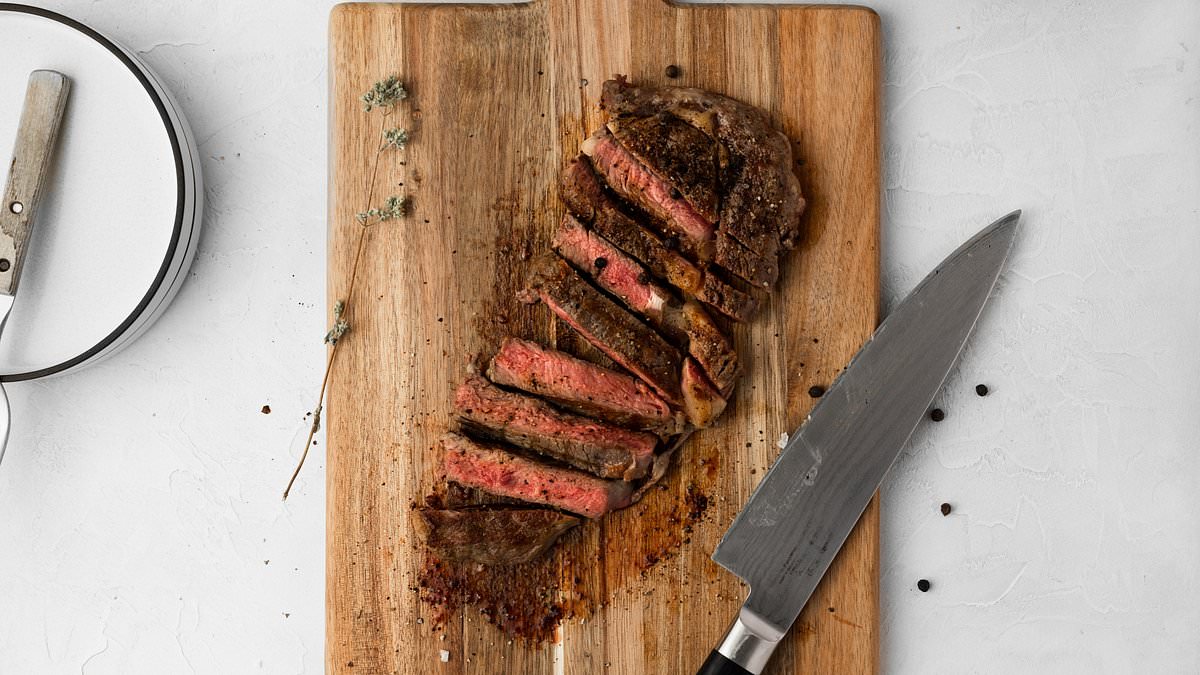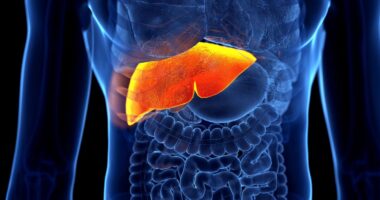Question: Is there anything I can do about my flagging libido? My husband and I have been married for 25 years and we’ve never really had a problem in that area.
However, over the past six months or so, my interest in intimacy has diminished. I had thought it might be menopause-related, but I’ve been on HRT for a few years.
I have taken up light exercise to see if it helps. Is there anything else I can do?

Problems with libido can come and go at any age, with stress, boredom or familiarity playing a role, says Dr Clare Bailey
Answer: I’m sorry to hear you’re having problems with your libido. Sadly, this is all too common, and there are a host of reasons why sexual desire can diminish as we get older, from a decline in oestrogen — leading to physical symptoms like vaginal dryness — to worrying about body image. If your main problem is dryness then over-the-counter lubricants and moisturisers might help.
Problems with libido can come and go at any age, with stress, boredom or familiarity playing a role. It is great that you are being proactive. So well done for starting regular exercise. Try to include strength training, too. Studies show that exercise can increase sexual arousal and satisfaction. It can also boost mood and confidence. Pelvic floor exercises also improve satisfaction.
As for other non-medical solutions to a flagging sex life, it’s worth considering the impact of food. We know eating a Mediterranean-style diet rich in fruits, vegetables, lean protein and whole grains not only benefits your mental health and sleep, but also helps keep your sex drive in shape. In one study, women who ate this diet scored higher on desire, arousal, lubrication, orgasm and satisfaction than women who didn’t.

There are a host of reasons why sexual desire can diminish as we get older, from a decline in oestrogen — leading to physical symptoms like vaginal dryness — to worrying about body image
Phytoestrogens, found in foods such as flaxseeds, sesame seeds and chickpeas, act in a similar way to the female sex hormone oestrogen. Consuming these foods can help with symptoms of menopause. Foods high in zinc, such as oysters, nuts and seeds, may also have positive effects.
And it’s not just women whose sex life flags with age. If your husband needs a bit of a boost, then there are certain items it’s worth him adding to his diet. Beetroot, for example, has long been considered an aphrodisiac. In fact, it works a bit like Viagra. It is high in nitrates, which are converted by the body into nitric acid, which expands blood vessels and improve blood flow to your organs, including sexual organs.
And he might be interested to hear that foods rich in omega-3 polyunsaturated fatty acids such as salmon, anchovies, tuna and mussels can boost testosterone levels in men.
If you are feeling adventurous, add some fermented foods, such as kimchi, to your diet. Fermented foods are packed with probiotics, vitamins and minerals and have been shown to help reduce stress and anxiety, perhaps due to the impact on your gut microbiome. Less stress and anxiety equals a more fulfilled sex life.
Vitamin D levels can be low at this time of year, so consider supplements, as it can also improve your mood and wellbeing.
But perhaps one of the best things you can do to improve your sex life is talk to your partner about your likes and dislikes or just try different things. Couples who are able to talk to each other in an open way are likely to maintain a closer and more trusting relationship. Perhaps all you need is a bit of a shake up to bring a bit of zing back into your sex life.
If things are not improving, it may be worth discussing your diminishing libido at your next HRT check with your doctor.









